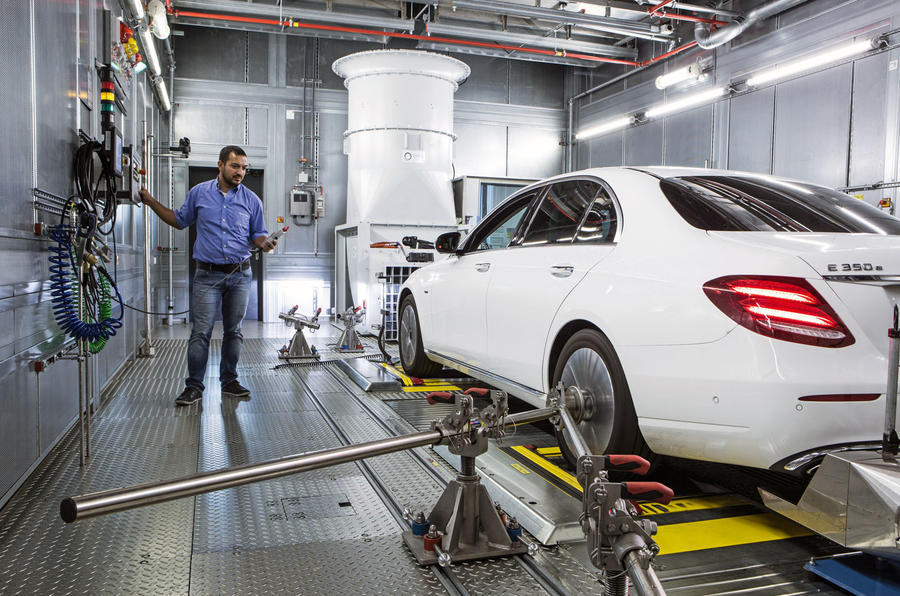Emissions from new cars registered in the European Union, UK, Iceland and Norway rose for the third consecutive year in 2019 - with the European Environment Agency (EEA) calling on manufacturers to rapidly increase the roll-out of zero- and low-emission vehicles.
According to provisional data produced by the EEA, average emissions from new passenger cars in 2019 reached 122.4g/km CO2, up 1.6g/km from 2018 – well above the EU fleet target of 95g/km being introduced this year. It is the third straight year that new car CO2 emissions have risen in the EU, following a steady decline from 2010 until 2016.
Under the tough new EU rules being introduced for 2020, manufacturers face steep fines for exceeding their fleet targets, which for this year are based around cutting average fleet emissions to 95g/km.
The EEA calculated the data from the near-15.5 million cars registered in the EU, UK, Iceland and Norway. It attributed the increase to several factors, including the continued increase in sales of SUVs and heavier cars, and relatively low sales of electrified cars.
Of that total, 59% were petrol engines, with diesel accounting for 31% - a decline of 23% since 2011. Hybrids accounted for around 4%, while electric and plug-in hybrid vehicles combined totalled 3.5%, up from 2% in 2018. Around half of all EV sales were registered in Norway, Germany and the Netherlands.
According to the EEA, around 38% of new car registrations in 2019 were SUVs, which, it said, have increased fuel consumption because they “are typically heavier and have more powerful engines and larger frontal areas”. According to the EEA data, the majority of SUVs were petrol powered, with average emissions of 134g/km CO2, around 13g/km higher than the average emissions of other new petrol cars.
While SUVs accounted for some of the increase in average vehicle weight, the EEA noted that the average mass of all new cars across all segments rose by 30kg from 2018 to 2019.
The EEA also noted that the 127.0g/km CO2 average emissions of diesel cars is now just 0.6g/km lower than the average for petrol cars (127.6g/km), the smallest gap since it began recording data.
Although the increase in average new car emissions for 2019 is a concern, manufacturers are pushing hard to cut their 2020 fleet averages to meet the new EU targets. Most firms have greatly increased both their range and availability of hybrid, plug-in hybrid and electric cars, and some have also halted production or limited availability of some higher-emission vehicles.
While the EU has required all vehicles to be tested under the Worldwide Harmonised Light Vehicle Test Procedure (WLTP) since 2017, for compliance the fleet average data is still recorded using the old New European Driving Cycle (NEDC) measurement.









Join the debate
Add your comment
Blame the carmakers
Here's just one example: in
Here's just one example: in 2015 Jaguar was able to claim that a 2.0 diesel XE could return nearly 70mpg. This was utter rubbish. Since then, the Ingenium engine has been improved, and is now cleaner and (probably) more fuel efficient in real world use. But - according to NEDC2 figures - it will do 55-60 mpg. On paper worse, but in reality likely better!
Seems this is what you get
Seems this is what you get when people buy what they want, rather than what a politician tells them they want.
Its going to be very expensive for some car manufacturers though. I imagine we will end up with less choice, and even higher prices too.
This data is extremely flawed
This data is extremely flawed as it is based on discredited NEDC data. It's a total nonsense. Autocar should be debunking myths, not just regurgitating them.
Concentrate on the story
If manufacturers were still using NEDC data, and it was legal to use NEDC data how on earth can you say it's discredited? And it really doesn't matter if they use NEDC, WLTP or oranges to calculate the emission levels, the moral of the story is that emissions of brand new cars are rising - they're using more oranges !
Because the NEDC figures are
Because the NEDC figures are totally bogus, that's why. Emissions may be rising, but it's hard to know - all NEDC tells you is that the official lab figure has risen, but this covers a period in which manufacturers scrabbled to rewrite software codes and install new exhaust cleaning hardware in order to recover from the dieselgate scandal. The real world emissions and fuel efficiency of cars in 2015 was much, much worse than the official figures and cannot be relied upon.